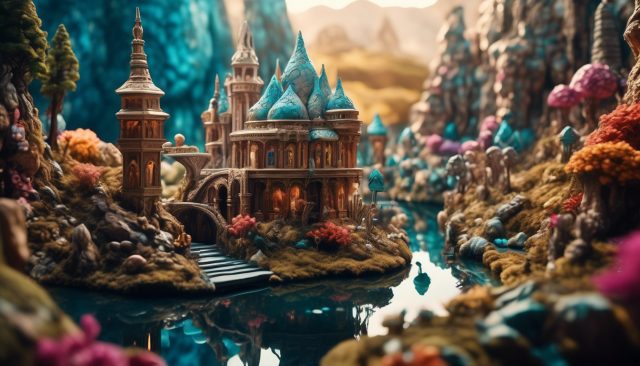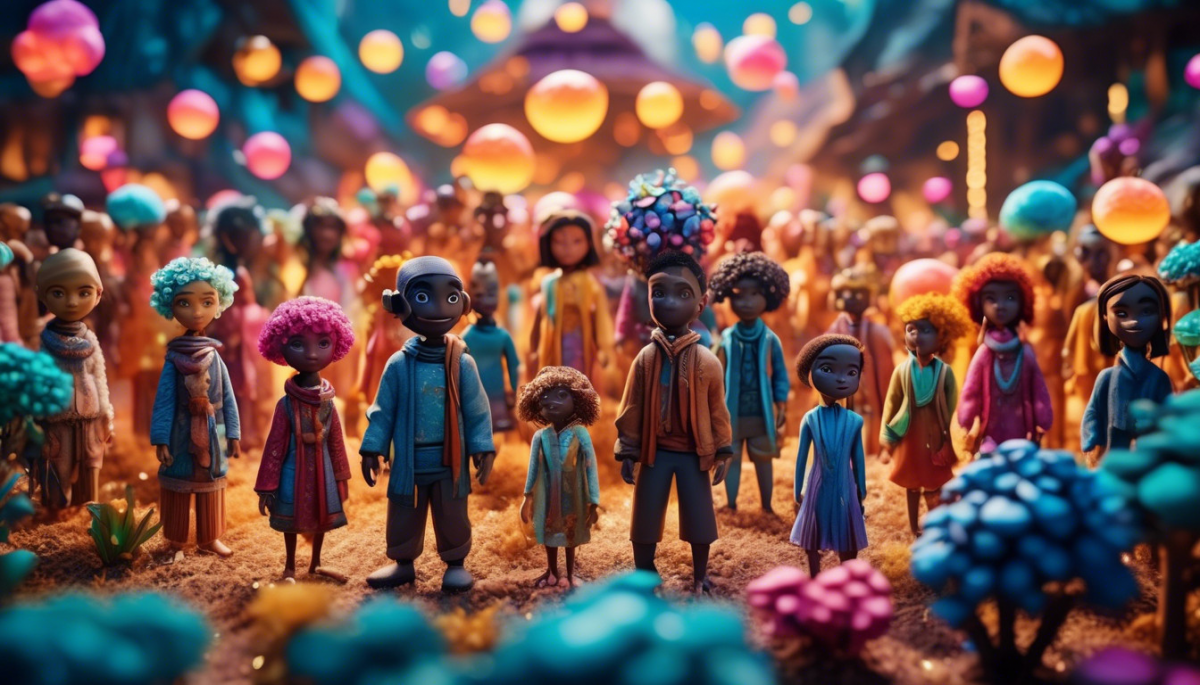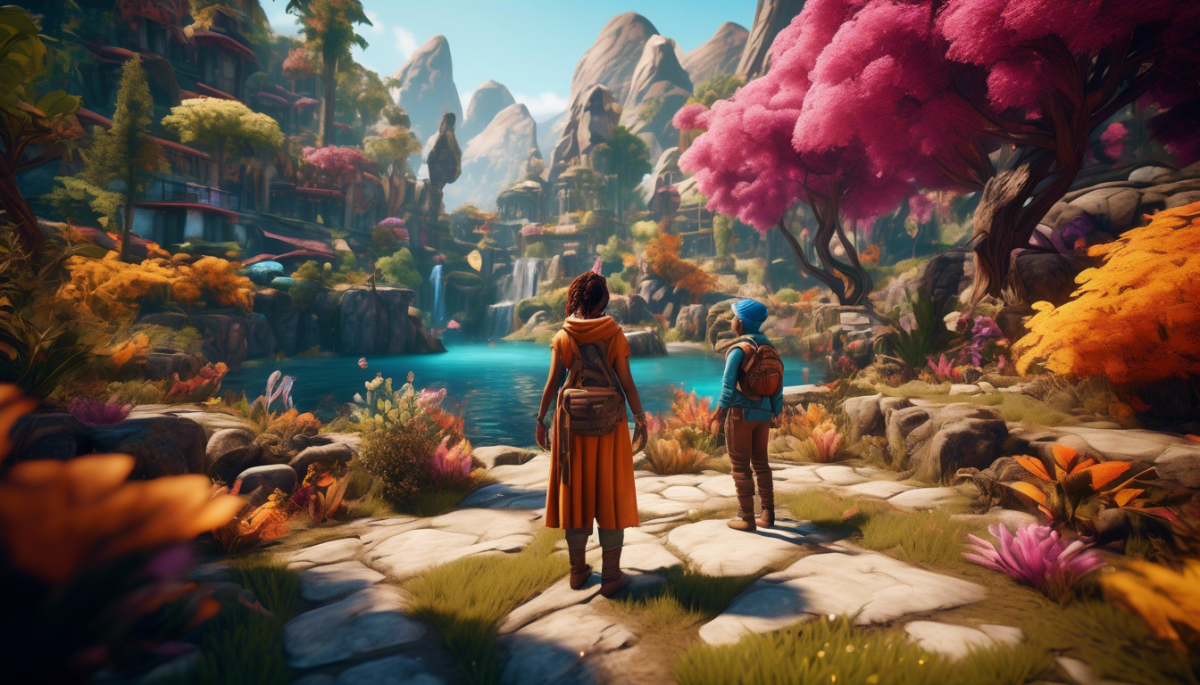The Benefits of Exploring User-Created Game Worlds
20 mars, 2020 by Karl Johansson

Exploring user-created game worlds offers a multitude of benefits that extend beyond traditional gaming experiences.
These virtual environments provide players with an opportunity to engage in rich, immersive landscapes crafted by fellow enthusiasts, fostering a sense of community and collaboration.
The diversity of content available in user-generated worlds enhances creativity and innovation.
Gamers can experience gameplay that is both unique and personalized. These platforms serve as incubators for budding game designers, offering a space to experiment and showcase their skills to a global audience.
The interactive nature of user-created worlds encourages:
- Problem-solving
- Strategic thinking
- Social interaction
- Shared experiences among players
As technology continues to advance, the potential for user-created game worlds to become more complex and intricate grows, promising even greater opportunities for exploration and learning.
Overall, the exploration of these virtual environments enriches the gaming experience, offering both entertainment and educational value.
Enhanced Creativity and Innovation
User-created game worlds significantly boost creativity and innovation by allowing players to design unique environments and narratives. This empowerment fosters a sense of ownership, enabling players to exercise their creative faculties in crafting personalized experiences.
By utilizing various tools and resources, players can experiment with different artistic styles, storylines, and gameplay mechanics, pushing the boundaries of traditional game design.
The ability to create tailored content not only enhances individual creativity but also contributes to the greater gaming community’s collective innovation.
The personalization aspect inherent in user-created game worlds encourages players to express their distinct identities and visions. This personalization cultivates a vibrant community where diverse ideas and perspectives converge, leading to a dynamic and ever-evolving gaming landscape.
As players share their creations, they inspire others to explore new possibilities and push creative limits.
Ultimately, this continuous cycle of creativity and innovation strengthens the bond within the gaming community, fostering a shared sense of belonging and purpose among its members.
Community Building and Collaboration
User-created game worlds foster robust community building and collaboration by encouraging players to work together in designing shared experiences and environments.
This cooperative approach enhances creativity as diverse ideas converge, resulting in dynamic and engaging virtual spaces.
Communities formed in these environments thrive on shared goals and mutual respect, creating a sense of belonging essential for sustained engagement.
Collaboration in user-created worlds often leads to the development of intricate and personalized settings, reflecting the collective imagination and creativity of their contributors. These environments allow individuals to express unique perspectives while contributing to a larger communal narrative.
Such shared endeavors enable players to build lasting relationships, reinforcing the social fabric that underpins these game worlds.
The personalization of these virtual spaces fosters an inclusive atmosphere, where each participant’s input is valued.
This collaborative spirit not only strengthens the community but also ensures the continuous evolution of the game world, aligning with participants’ evolving preferences and creative aspirations.

Personalized Gameplay Experience
User-created game worlds offer a tailored gameplay experience by allowing players to shape environments and narratives according to their unique preferences and interests. This level of personalization empowers individuals to engage more deeply with the gaming environment, fostering a sense of ownership and belonging.
By utilizing creativity, players can design game elements that resonate with their personal tastes, thus enhancing the overall enjoyment and immersion.
The community aspect of user-created game worlds further enriches the personalized gameplay experience. Players can share their creations with others, receiving feedback and inspiration that fuel further innovation. This collaborative environment encourages players to explore diverse creative avenues, leading to a dynamic exchange of ideas within the community.
As a result, the gaming experience becomes not only a personal journey but also a shared adventure that encourages collective creativity.
In conclusion, the personalized gameplay experience in user-created game worlds cultivates a strong sense of community and creativity, allowing players to connect through shared interests and personalized content.

Development of Cognitive Skills
User-Created Game Worlds and Cognitive Skills
User-created game worlds significantly enhance cognitive skills by challenging players to solve complex problems and think critically. These digital environments provide an ideal platform for creativity, where players must devise innovative solutions to navigate and manipulate virtual landscapes.
The necessity to think outside conventional parameters fosters an adaptable mindset, enhancing problem-solving capabilities.
Community and Collaboration
Within these virtual realms, the sense of community further enriches cognitive development. Collaborative problem-solving in multiplayer settings encourages the exchange of diverse ideas, promoting collective intelligence and inclusivity.
Engaging with others in shared objectives not only enhances strategic thinking but also cultivates a sense of belonging, essential for personal growth.
Personalization and Adaptability
Personalization in user-created game worlds also plays a crucial role in cognitive skill development. By allowing players to tailor their experiences, these environments encourage exploration and adaptability, prompting users to apply critical thinking in novel scenarios.
The ability to modify and customize elements within the virtual world nurtures a deeper understanding of cause-and-effect relationships, ultimately broadening intellectual horizons and fostering lifelong learning.
